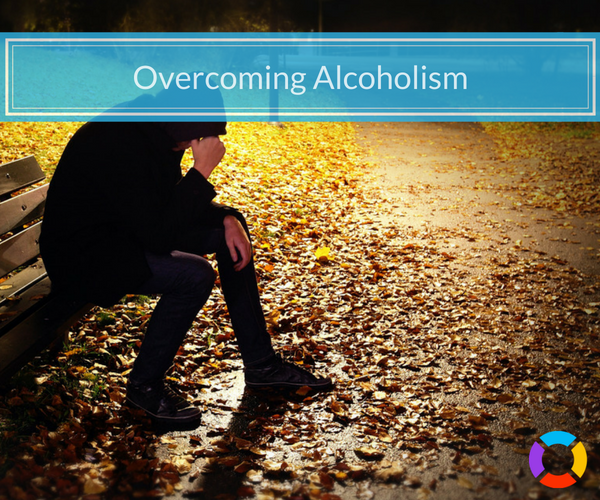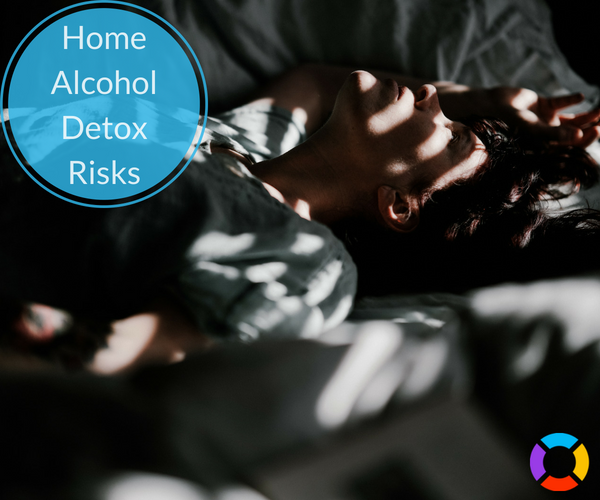Alcohol Detox & Withdrawal: Symptoms, Timeline, and Safe Treatment

Alcohol is one of the most widely used substances in the world. It’s also among the most addictive. But for persons who’ve developed an alcohol dependency, attempting to detox on your own can be not just uncomfortable but also life-threatening.
The good news is that it is possible to detox from alcohol safely and comfortably under medical supervision.
Why Alcohol Detox Matters
Alcohol detox is the first crucial step in overcoming alcohol addiction and withdrawal. When someone dependent on alcohol stops drinking, they may experience alcohol withdrawal symptoms that can range from mild discomfort to life-threatening health issues.
Understanding what happens during detox, how long alcohol withdrawal lasts and the best treatment options available can mean the difference between a safe recovery and a medical emergency. We’ll cover the alcohol withdrawal timeline, detox programs, home detox dangers, medications and holistic recovery strategies.
Detox from alcohol safely – Call Now for Help.
What Happens During Alcohol Withdrawal?
When someone who is alcohol dependent stops drinking, their brain and body undergo sudden, stressful changes.
Alcohol is a known depressant, which means that it slows down the function of your brain. Over time the body compensates by increasing the number of excitatory neurotransmitters in the brain. When alcohol is removed suddenly, this balance can collapse, resulting in withdrawal.
Symptoms of alcohol withdrawal can include:
- Tremors
- Anxiety
- Nausea
- Insomnia
- Sweating
- Hallucinations
- Seizures
An important note: Alcohol withdrawal can quickly become dangerous and even deadly. Withdrawal should be monitored closely by a medical professional.
Why Withdrawal Happens When You Quit Drinking
Alcohol is a depressant, slowing down the functions of the brain and the body.
As the central nervous system adjusts to having alcohol, the body and brain have to work to stay alert and awake. When alcohol is removed, the central nervous system can enter a hyperactive state. As a result, your body can experience intense physical and psychological symptoms.
Alcohol Withdrawal Timeline
How long alcohol detox lasts can be different from one person to another, and can quickly escalate to dangerous levels.

If you’re interested in detoxing from alcohol, it’s important that you work closely with a medical detox team that can keep you as safe and comfortable as possible throughout the detox process.
Many people experience the following alcohol withdrawal symptoms in the days following their last drink:
| Time since last drink | Withdrawal symptoms |
| 6-12 hours | Mild symptoms such as headache, nausea, anxiety, and tremors |
| 12-24 hours | Increased anxiety, tremors, and possible hallucinations |
| 24-48 hours | Highest risk of seizures |
| 48-72 hours | Possible onset of delirium tremens (DTs) |
| Days 4-7 | Symptoms gradually improve, but cravings and anxiety may linger |
Some people experience post acute withdrawal symptoms (PAWS), a condition that can persist for weeks or months, including mood swings, sleep issues and ongoing cravings. If you’re experiencing withdrawal symptoms or are interested in detoxing from alcohol, reach out to a detox center for medical assistance.
Detox Treatment Options
Many options can help you safely move through the withdrawal and detox process, preparing your mind and body for inpatient or outpatient treatment.
Inpatient Alcohol Detox
Inpatient alcohol detox is best for those who are living with moderate to severe alcohol addiction and withdrawal symptoms. Inpatient detox offers 24/7 care and monitoring, as well as the chance to get away from the people, places, and things associated with your addiction.
Outpatient Alcohol Detox
Outpatient alcohol detox is a flexible, less intensive option that’s better suited for otherwise healthy individuals with mild to moderate cases of alcohol use disorder and/or withdrawal symptoms.
Curious about outpatient alcohol detox? Call today.
During outpatient detox, patients live at home but attend daily treatment and monitoring sessions. This type of detox requires a strong social or family support system.
Medications for Alcohol Withdrawal
In some cases, your treatment provider may discuss using medications to help support you through the alcohol withdrawal process. These can both support your health and well-being as alcohol leaves your system, as well as help to support your long-term abstinence.
Medications that can help support you during and after the withdrawal process include:
- Benzodiazepines: These medications (including Librium, Valium, and Ativan) are used to help with anxiety and insomnia, and may support the management of withdrawal symptoms. It’s important to only use benzodiazepines under medical supervision, as they can cause dependence and other adverse effects.
- Naltrexone: This drug (brand names include Vivitrol, ReVia, and Depade) is often used for people who are suffering from opioid use disorder. It’s also used to help people recover from alcohol addiction, as it may decrease cravings and block the “buzz” that comes with drinking. It’s important to note that this drug does not stop the impairment that’s associated with drinking alcohol.
- Acamprosate: Sold under the brand name Campral, acamprosate can help treat alcohol use disorder following withdrawal. Acamprosate is not used to treat withdrawal symptoms.
- Disulfiram: Typically referred to by its brand name, Antabuse, disulfiram causes adverse reactions—including a rapid heartbeat, chest pain, dizziness, and nausea—when combined with alcohol. While this medication is not used to treat withdrawal symptoms, it may support ongoing sobriety.
- Thiamine and other nutritional supplements: People who have alcohol use disorder may suffer from thiamine deficiency, as alcohol can block the absorption and utilization of thiamine. Also known as vitamin B1, thiamine is essential for healthy brain function and metabolism. Thiamine deficiency can lead to Wernicke-Korsakoff syndrome (WKS), which can cause vision problems, coordination issues, memory problems, and other cognitive impairments. Your doctor may recommend supplementation to help prevent WKS.
There are many other medications that may be recommended during your alcohol detox, depending on your personal situation, overhealth, and severity of withdrawal.
Many of them are prescribed to prevent or treat specific withdrawal symptoms, such as seizures, anxiety, insomnia, and nausea. Examples include gabapentin, ondansetron, clonidine, and hydroxyzine.
Dangers of Detoxing From Alcohol at Home
Going through detox “cold turkey” isn’t just painful—it’s dangerous. Many people who attempt alcohol detox on their own experience symptoms that require immediate medical care, such as hallucinations, seizures, and delirium tremens (DT).
Between 2% and 5% of people going through alcohol withdrawal develop DT, a severe withdrawal complication that is fatal in up to 4% of people who develop the condition.
Holistic and Long-Term Recovery Support
Holistic recovery integrates a variety of treatment approaches to provide well-rounded alcohol recovery support. Choosing holistic treatment for alcoholism can help you develop the skills that you’ll need to maintain your sobriety throughout treatment and beyond.
Nutrition, Hydration, and Sleep Regulation
Focusing on whole-body health is a key component of alcohol rehab for many people beginning the recovery process. During detox and inpatient or outpatient treatment, it’s important to eat healthy meals, rehydrate your body, and get the sleep that you need as you lean into your sobriety.
Behavioral Therapies
Your personalized treatment plan will determine what types of therapies you’ll receive as you go through treatment.
Common therapies that help people living with substance use disorder include cognitive behavioral therapy (CBT) and dialectical behavioral therapy (DBT). Depending on your needs, you may want to explore treatment facilities that offer trauma-informed care.
Peer Support
Many people who are in recovery benefit from peer support programs, including 12-step meetings. Group therapy as a part of an inpatient or outpatient care program can also help you establish the social support necessary for lasting recovery.
Wellness Integrations
Yoga, meditation, and fitness activities can help support healthy recovery. Many people find that health and wellness activities provide an outlet for stress, making it easier to stay away from alcohol and other substances in times of stress.
Don’t risk detoxing alone. Call today for help.
Choosing the Right Alcohol Detox Program
When you decide to explore alcohol detox programs, you’ll find that you have a wide variety of options. Knowing what to look for can help you find the right detox program for your unique recovery needs.
Consider the following factors as you search for an alcohol detox program:
- Severity of addiction: The severity of your addiction will play a role in determining the type of detox that’s the right fit for your needs. If you’re trying to decide between inpatient vs outpatient detox, it’s key to understand that inpatient detox is often the safest choice for those with moderate to severe substance use disorder.
- Your overall health and medical problems: Medical problems like heart disease, diabetes, and seizure disorders put you at a higher risk of complications related to alcohol withdrawal. An inpatient program is typically recommended for individuals with medical issues.
- Co-occurring disorder care: If you’re experiencing depression, anxiety, addiction to another substance, or another mental health disorder in addition to alcohol use disorder, you may need to work with a facility that offers treatment for co-occurring disorders.
- Insurance coverage: Be sure to verify your insurance benefits with your treatment provider to ensure coverage.
- Location and comfort level: You may be most comfortable in a detox center close to your home, or a center with certain amenities. Luxury or private alcohol detox may increase your comfort level as you go through the withdrawal process.
Be sure to ask potential treatment providers the following questions as you’re working to choose a detox facility:
- Is detox medically supervised?
- Do you offer holistic support?
- Can you transition me into longer-term care?
- Do you offer medication-assisted treatment?
Get Help with Alcohol Recovery Now
If you’re living with alcohol addiction, you aren’t alone. Asking for help with the detox process is a sign of strength and indicates that you’re ready and motivated to make a positive change. Beginning the detox process sets you up for lasting sobriety while offering the support you need to get through the first days of your recovery.
You can find health and wholeness on the other side of alcohol addiction. Visit Detox.com to connect with a qualified detox center in your area or call the helpline at 800-996-6135 . It may be the most important decision you’ll ever make!
Alcohol Detox FAQs
Alcohol detox involves clearing alcohol out of the body while keeping withdrawal symptoms managed.
Alcohol withdrawal can last for a few days or sometimes a week depending on the severity of your addiction. Most people will begin to experience symptoms within 6 to 12 hours after their last drink. Severe withdrawal-related conditions like PAWS can persist for several weeks.
It’s not recommended to detox from alcohol at home, as the withdrawal process carries risks (including seizures, hallucinations, and delirium tremens) that can quickly turn life-threatening.
Your treatment team will work with you to determine whether you may benefit from medication during detox. Commonly used medications include benzodiazepines and naltrexone.
Outpatient alcohol detox can be an effective treatment option for those living with mild to moderate alcohol addiction. Be sure to talk with your healthcare provider about what type of detox program makes the most sense for your unique needs.

